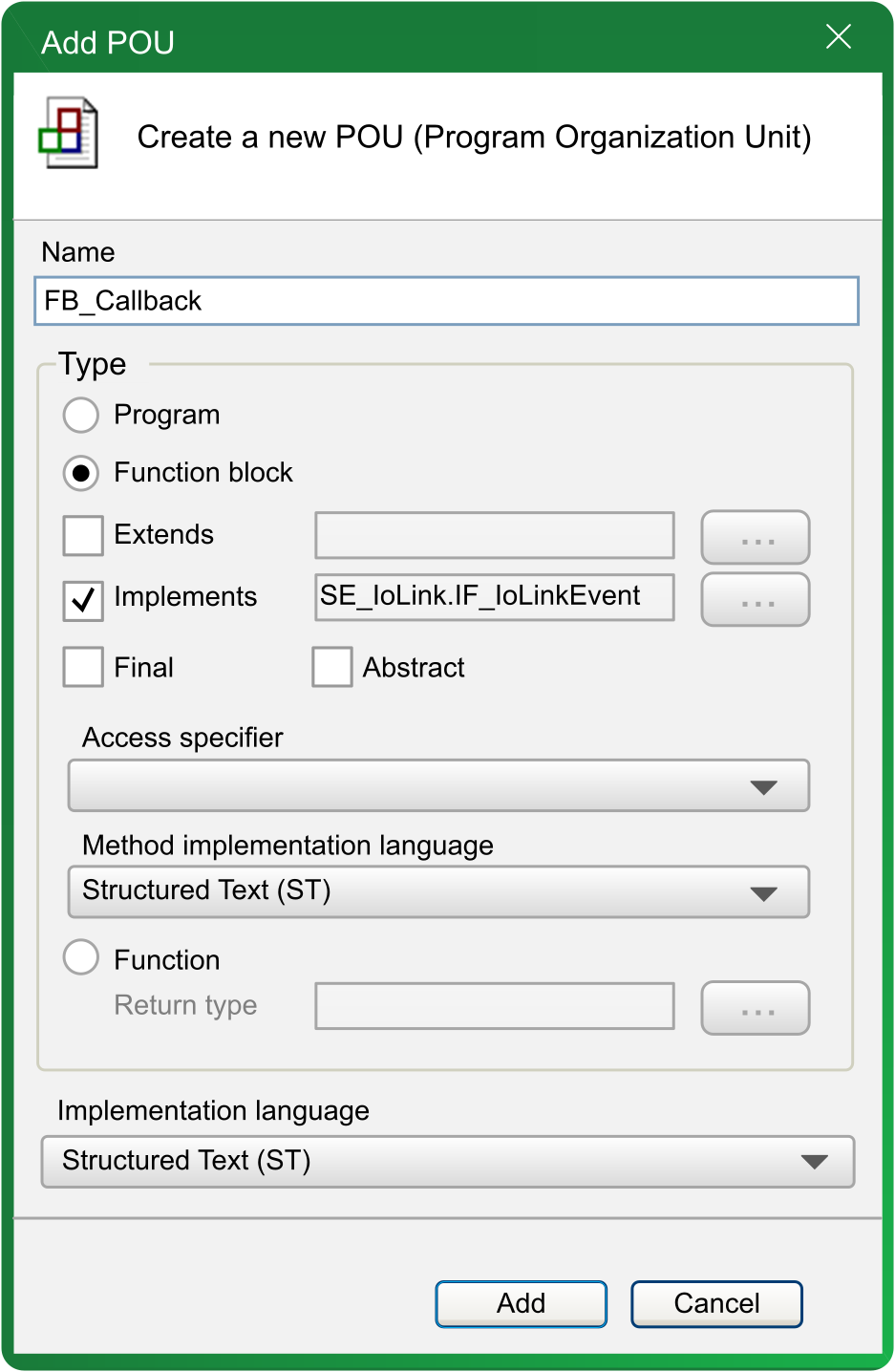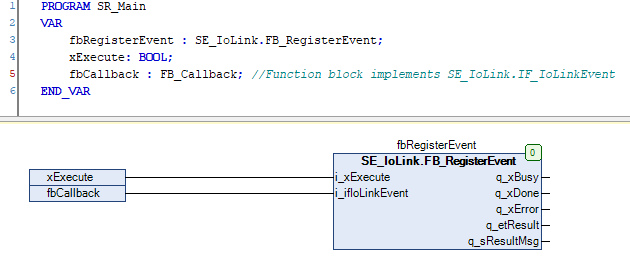FB_RegisterEvent - Functional Description
Functional Description
The function block FB_RegisterEvent is used to register a callback to the IO-Link events. To update the callback assign the new value to i_ifIoLinkEvent and execute the function block again. A callback can contain up to 16 events. If more events will occur at the same time, these will be splitted to further callbacks.

Interface
|
Input |
Data type |
Description |
|---|---|---|
|
i_xExecute |
BOOL |
On rising edge, process is started. |
|
i_ifIoLinkEvent |
IF_IoLinkEvent |
IF_IoLinkEvent to be called in case an event is generated.
NOTE: Provide the IoLink master instance of type FB_IoLinkMaster specified inside the Devices tree.
|
|
Output |
Data type |
Description |
|---|---|---|
|
q_xDone |
BOOL |
Indicates that the execution process has been completed successfully. |
|
q_xBusy |
BOOL |
Indicates that the execution process is in progress. |
|
q_xError |
BOOL |
If this output is set to TRUE, an error has been detected. For details, refer to q_etResult and q_etResultMsg. |
|
q_etResult |
Provides diagnostic and status information as a numeric value. |
|
|
q_sResultMsg |
STRING [80] |
Provides additional diagnostic and status information as a text message. |
Example
Following example indicates the registration of the function block instance fbCallback as callback to events generated by the IO-Link master and devices. You have to declare the function block FB_Callback inside the application and implement the interface SE_IoLink.IF_IoLinkEvent.

The instance of this function block can then be passed to the function block instance fbRegisterEvent. By executing the function block instance fbRegisterEvent the callback is registered.

In case a callback is generated, the method fbCallback.EventCallback is called by the system. Following example indicates the implementation of the EventCallback method to react on the generated events by the IO-Link device inserted into the first slot of the IO link master TM5SE4IOL.
